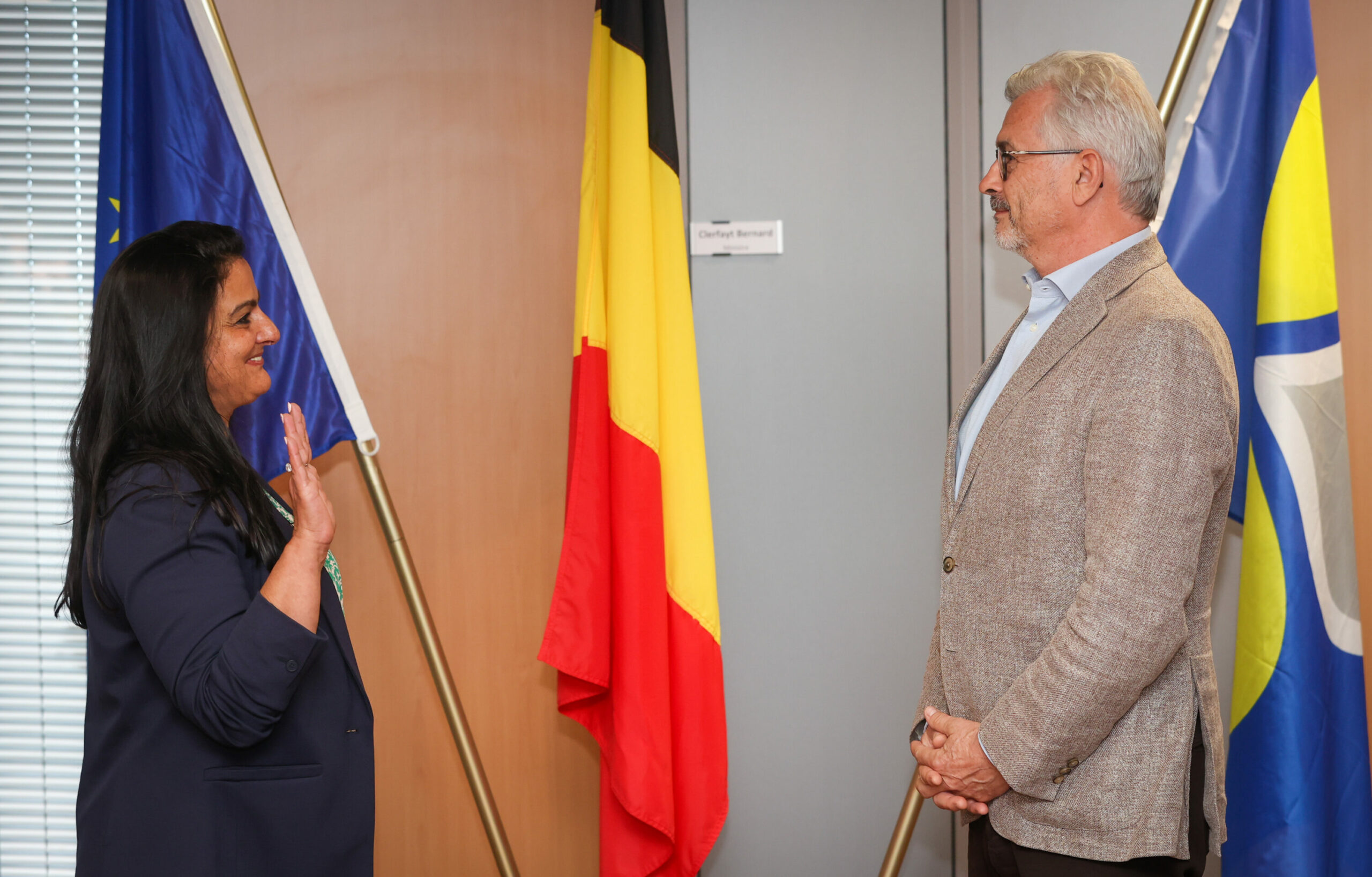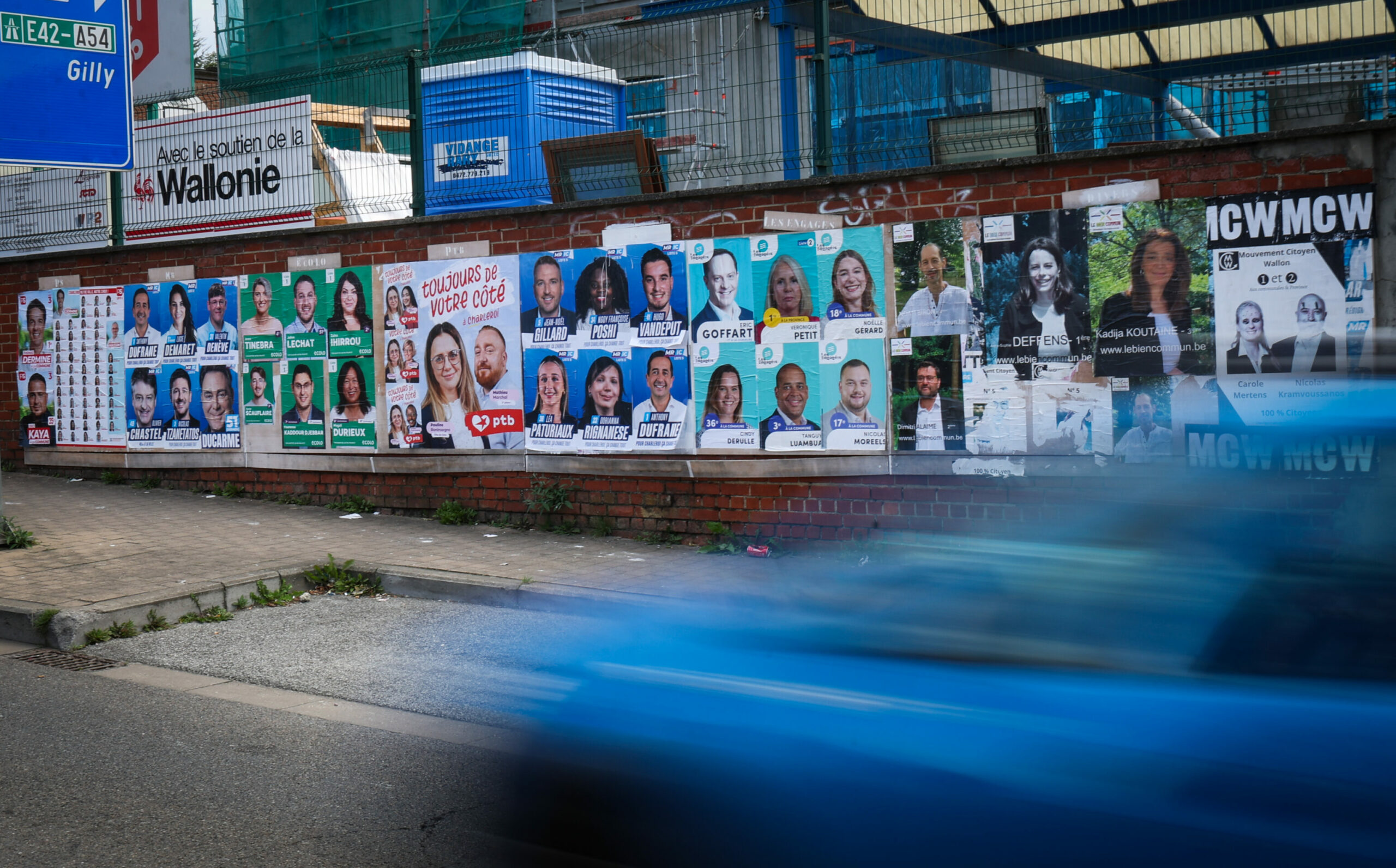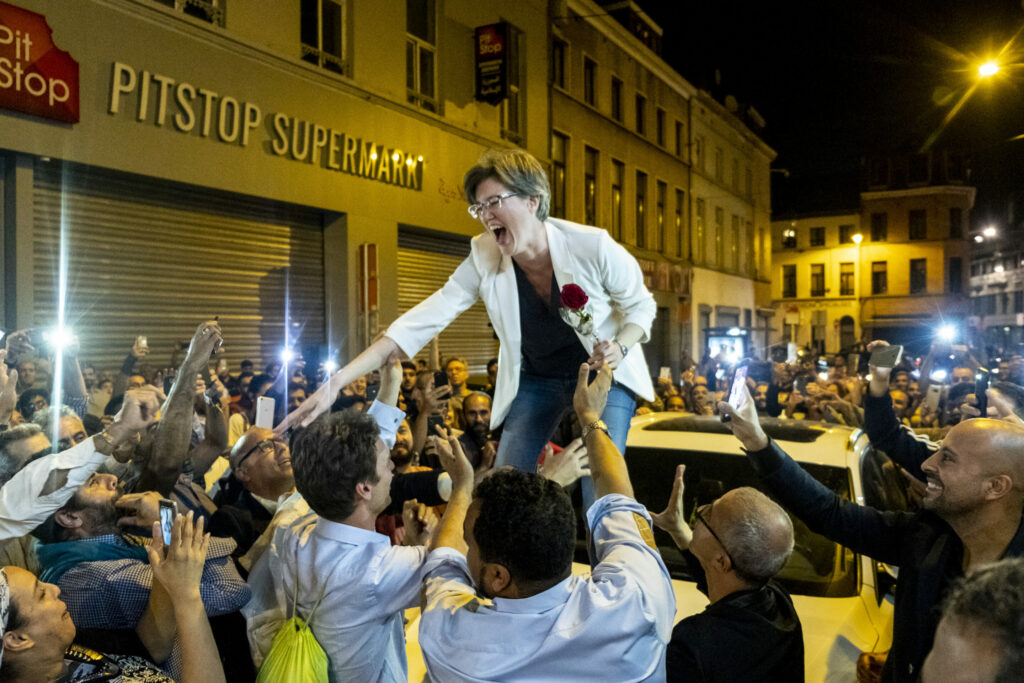As candidates are out canvassing for the local elections this week, you might notice that there is an even share of men and women in the race – thanks to a law introduced in Belgium more than two decades ago that requires gender parity on all electoral lists.
While this law has greatly improved the number of women elected on to municipal councils, when it comes to the most senior role of mayor, the number of women starts to dwindle.
Across the 19 municipalities of Brussels, the share of female councillors elected in 2000 was 36.9%. This rose to 47.34% by 2018. In contrast, the share of women appointed as mayor in Brussels' 19 communes has dropped, from 15.8% in 2000 to just 5.3% in the 2018 elections (when Molenbeek-Saint-Jean's Catherine Moureaux was the only woman appointed as a mayor).
The situation in Brussels has improved slightly over the past six years, as some men have given up their roles and been replaced by women. This brings the total number of female mayors in Brussels to four: Catherine Moureaux in Molenbeek-Saint-Jean, Sophie de Vos in Auderghem, Mariam El Hamidine in Forest, and Claire Vandevivere in Jette.

Mariam El Hamidine being sworn in as Forest Mayor in May 2022. Credit: Belga / Virgine Lefour
So why are there so few women mayors?
Caroline Sägesser, research officer in the socio-political sector of the Centre for Socio-Political Research and Information (CRISP), explains that while gender parity rules have increased the number of women elected as councillors, there are still a number of factors why there are fewer women in senior positions such as mayor.
"Women are more exposed than men when they take up responsibilities. They are more vulnerable to insults and to being harassed on social networks, so it's more difficult for women to be in a key position," she said.
A study of social media posts around the June elections by UGent and ULB found a "sexist climate" on social media that "becomes even more pronounced during election campaigns," as almost 87% of responses to female candidates on X (formerly Twitter) were negative.
The sexism also occurs offline: former Schaerbeek mayor Cécile Jodogne, for example, was verbally attacked by members of the audience during a council meeting earlier this year, with one person calling her a sale pute ("dirty whore").
"And of course, women still have to carry a heavy load as far as their domestic private life is concerned," Sägesser added. "This may also discourage some women to run for a tough position when you have to work very long extra hours."
How are mayors chosen?
The way in which a mayor is appointed differs between regions. In Flanders and Wallonia, the candidate with the most preferential votes on the most successful party list is directly elected as mayor. In Brussels, the mayor is decided by the elected councillors after polling day.
Sägesser explains that while directly electing mayors in Flanders and Wallonia is more democratic, it will also have a "negative effect on the representation of women in this position."
"Male politicians are better known by the public, they are more popular, and people see them more. At the end of the day, it's still a very patriarchal society. Unless you really break this trend by deliberately deciding to put a woman forward and to make sure that she gets the same visibility and the same media coverage as a male counterpart, it's not going to change," she said.

Credit: Belga
While the system in Brussels also risks male bias among party officials putting forward mayoral candidates, Sägesser says that it at least gives a woman a chance to take up the role of mayor and become popular with the public. "It's better to leave a margin of appreciation to the political party so they can decide to nominate a woman for mayor, even though she might not be the most popular choice."
No perfect system
Sägesser says that there probably is no perfect quota or parity measure to ensure gender balance at a mayoral level. "It's impossible to put all the gender equality rules we have into practice when there's only one person in the position. If we say a woman has to be mayor every six years [after a man], that would be too prescriptive."
Instead, she believes that a crucial factor in improving female representation at the most senior levels of authority is visibility. "Unfortunately, I think for some if not the majority of citizens, it's been more difficult to envisage women in a role that carries significant authority. I think for some citizens whether they are male or female, in their mind they still more easily see a man in this kind of position than a woman," she said.
"Every measure aimed at making more women visible in politics should be temporary, just giving us enough time for the public to be accustomed to seeing as many women as men in all positions, including positions of authority. Hopefully, this is a transition, until we realise that there is definitely no reason why some positions in politics should fit better men than women."
Related News
- Vlaams Belang offers (prohibited) free shuttle to polling station in Antwerp
- Sexism and hostility against female politicians pose 'major issue for democracy'
- Belgian municipal elections: How a mayor is elected, and why Brussels differs
Looking ahead to this weekend, Sägesser is not hopeful that there will be a major increase in the number of women appointed as mayor. "We may see a slight increase in equality as far as the city councils are concerned, but I don't expect to see a real rise in the number of women in mayor's positions," she said.
However, she is more optimistic about the long term. "The situation will improve, and it has improved. When you look back, the first woman to be a mayor in Belgium was in 1921. She became a mayor just because her father died (who had held the position) and she had no brothers. The situation has definitely improved; the issue is that it's improving too slowly," she said.

